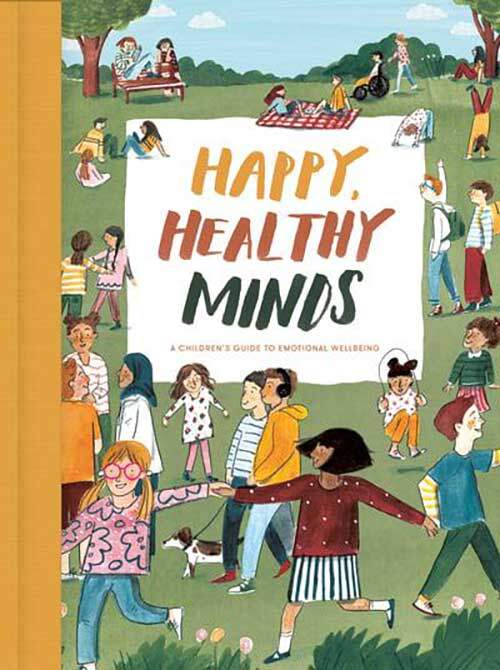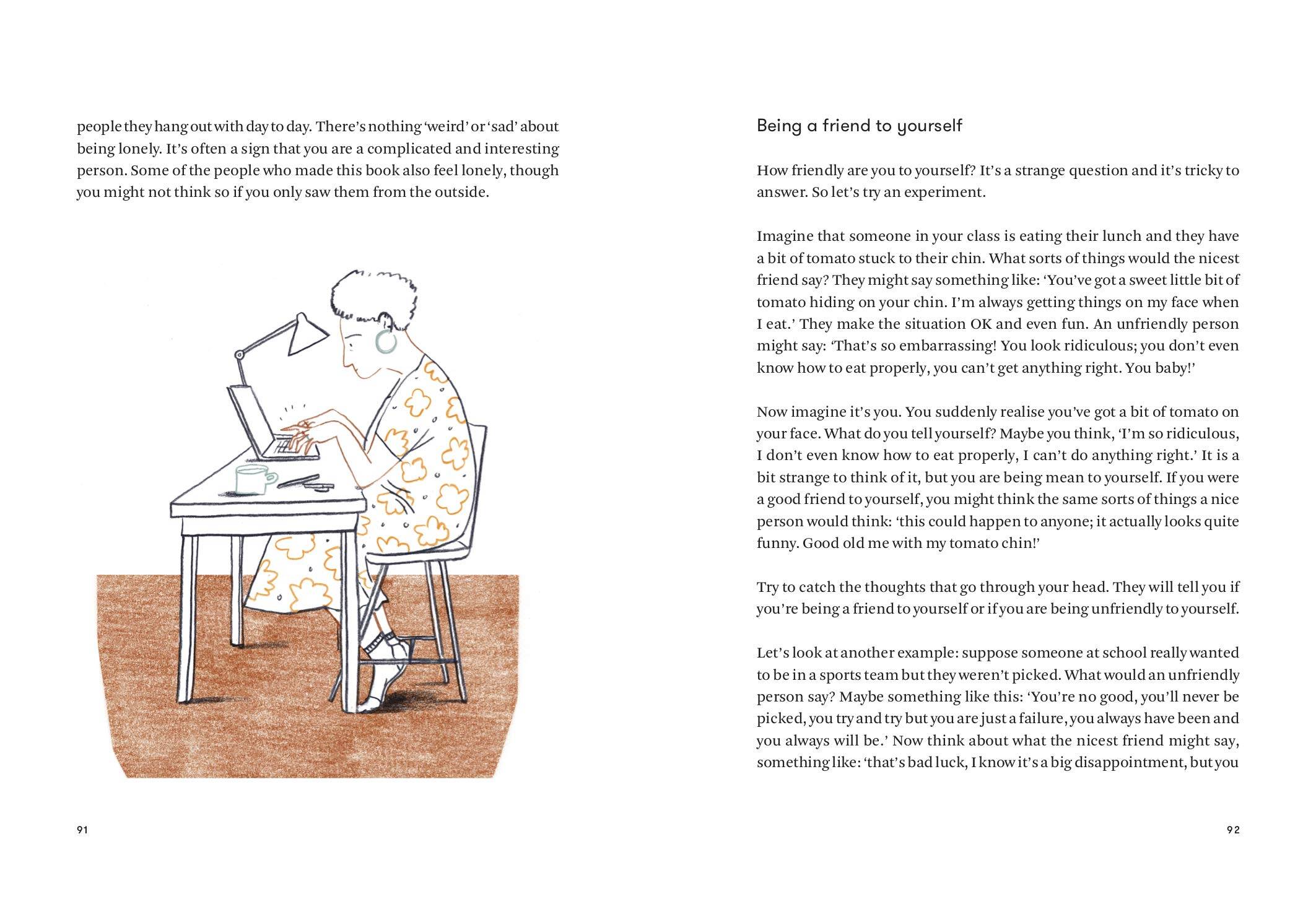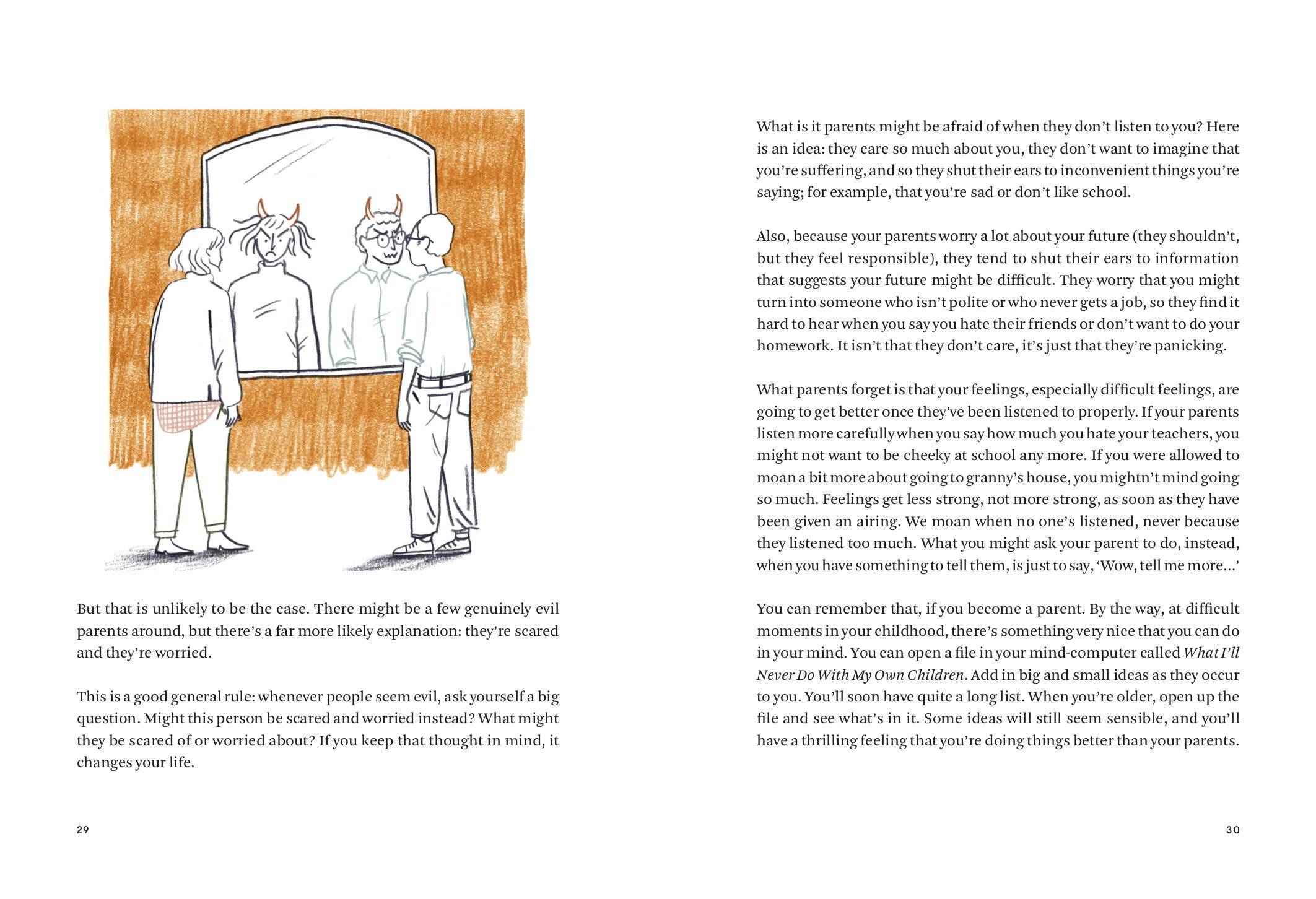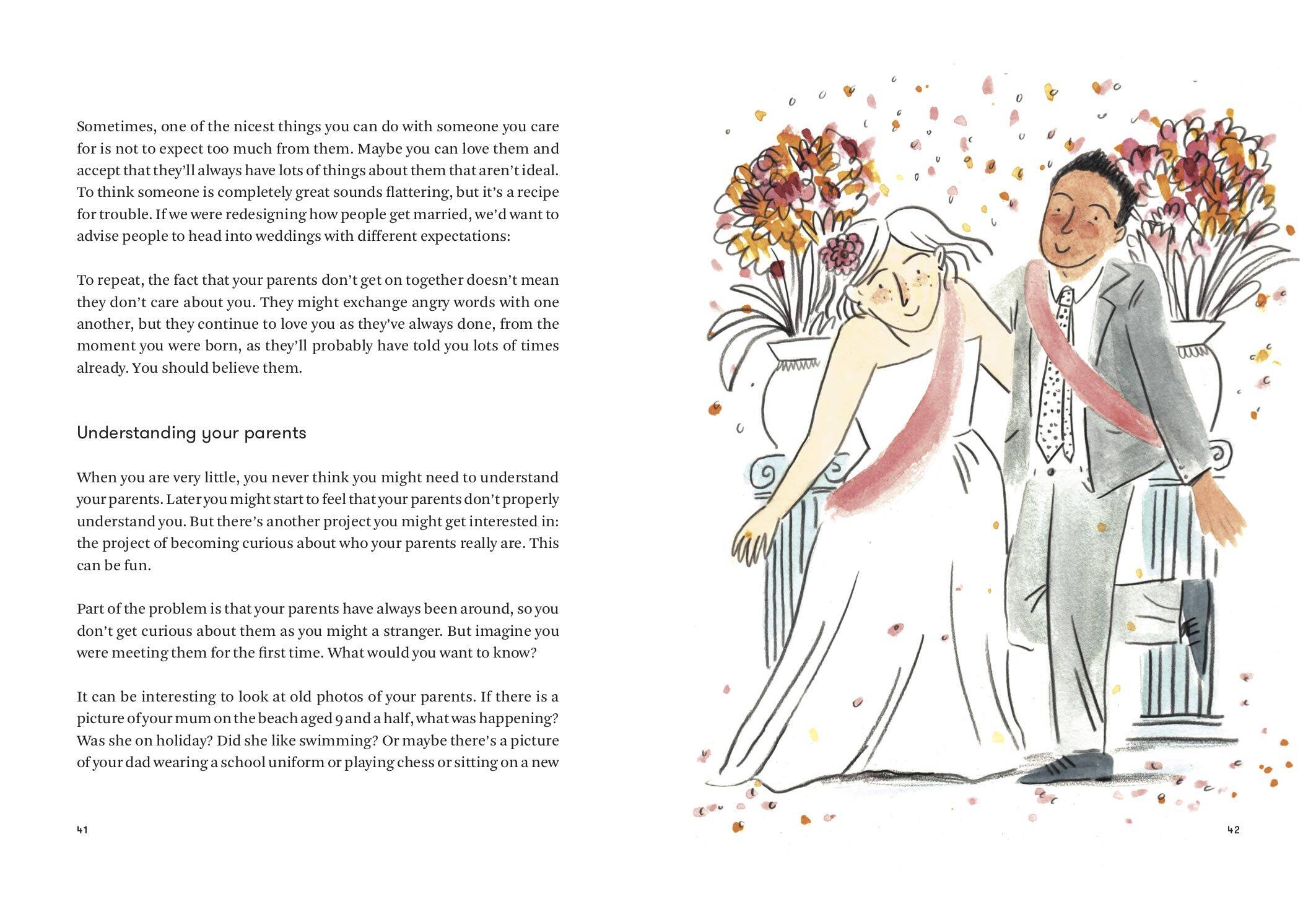Happy, Healthy Minds – at a glance
The School Reading Lists’ five word review: A godsend for PSHE teachers
Children’s book title: Happy, Healthy Minds: A Children’s Guide to Emotional Wellbeing.
Children’s author: The School of Life.
Genre: Children’s nonfiction.
Illustrated by: Lizzy Stewart.
Published by: The School of Life
ISBN: 9781912891191
Recommended for children aged: 10-16.
First published: Hardback August 2020.
This children’s book is ideal for: Children, parents, teachers and home educators interested in wellbeing.

To see the latest price or order, click on the book cover image. As an Amazon Associate schoolreadinglist.co.uk earns from qualifying purchases.
Our review:
Happy, Healthy Minds is a thorough guide to personal confidence, understanding, and wellbeing – explored by analysing and inviting the reader to consider how relationships, social interactions, happiness, anxiety and empathy work in real-life situations.
The step by step, analytical and reflective approach is appropriate for teaching to both primary and secondary children, and the detailed, but conversational writing style makes this text accessible for children from year 6 to year 11.
While this book is pitched as a self-help guide for children, it might be even more useful as a resource for primary and secondary PSHE teachers. So many schools have PSHE curriculums that don’t quite meet the needs of the pupils being taught. To work effectively, a PSHE, citizenship, mindfulness or wellbeing curriculum has to be tailored to the children in that school at that time. Generic off the shelf schemes are rarely relevant enough to engage, and bespoke plans designed in school might be productive for one year group, but less relevant once that cohort has moved on.
That’s where ‘Happy Healthy Minds’ could be a godsend to teachers in KS2 and KS3. The issues presented in this book make a great framework for discussion, exploration of ideas and strategies, and ‘pupil voice’. The trick is to get pupils talking about what matters to them, what they relate to, and how they use strategies and deal with issues. The topics in ‘Happy Healthy Minds’ are abstract enough not to become dated and the questions posed will ensure the pupil’s responses keep the engagement highly relevant and specific.
The topics examined include: ‘keeping your mind healthy’, feeling misunderstood’, ‘parents’, ‘anger’, ‘confidence’, ‘patience’, ‘your body’, ‘friends’, ‘bullies’, ‘how old am I’, ‘separation’ and ‘the adult world’, and highlights are: empathising and understand why parents act the way they do, the perceptive deconstruction of what school is, and why it is important; and the confidence-building ‘Inner Idiot Exercise’.
The book explores different perspectives and encourages pupils to use empathy and actively strategise and imagine not only how someone else might feel, but why they feel that way, and what they might do in response. The book challenges you as the reader to consider what you would do in a given situation. It also provides helpful suggestions that children might not have considered.
It also makes children think philosophically to develop their understanding. For example, it poses such questions as ‘what is education’, and ‘how does someone become a bully’; and poses provocative conclusions to consider, such as ‘parents are hypocrites’, ‘no one is normal’ and ‘your body is not you’.
Using Happy, Healthy Minds in the classroom
- The scenarios described in this book are highly relatable.
- Ideal material for KS2 circle times and group discussions.
- If your school delivers assemblies based on PSHE topics, this book is a very useful bank of ideas.
- The step by step format for analysing situations and how to respond is one that teachers and pupils can use as a template in PSHE lessons.
- The reflective approach could augment behaviour policies and help restorative justice approaches in school.
- The questions posted for each topic area are ideal for generating ideas in groups or pairs and promoting pupil voice.
- Ideal impetus material for older children to speak to younger children in vertical groups.
- Great for discussion, paired work, small groups.
- An ideal impetus for personal responses for homework or home learning projects
Our verdict
Happy Healthy Minds is an engrossing and affecting read for children aged 10-16 and a must-have resource for home educators and KS2 and KS3 teachers of PSHE. Highly recommended.
Many thanks to The School of Life for the review copy.
To order a class set of this book, please click below to order via uk.bookshop.org, an organisation that supports local bookshops, or Amazon.co.uk.
Buy from UK.Bookshop.Org Buy from Amazon.co.uk
Disclosure: If you buy books using the buttons above: we may earn a commission from Bookshop.org, whose fees support independent bookshops; as an Amazon Associate schoolreadinglist.co.uk earns from qualifying purchases.
If you like this book you might also like You Are Awesome: Find Your Confidence and Dare to be Brilliant at (Almost) Anything by Matthew Syed, What is Right and Wrong? Who Decides? Where Do Values Come From? And Other Big Questions by Michael Rosen and Annemarie Young, Big Ideas for Curious Minds: An Introduction to Philosophy by The School of Life by Rachel Firth, Minna Lacey and Jordan Akpojaro, Dare to Be You: Defy Self-Doubt, Fearlessly Follow Your Own Path and Be Confidently You! by Matthew Syed, Happy Confident Me Journal, and books by Tony Buzan.
Why not have a look at our list of kid’s magazines and newspapers or our collection of books for KS2?
Please respect copyright and don’t copy or reproduce our content. Sharing on social media or linking to our site’s pages is fine. Thanks.



